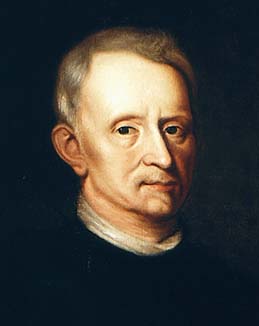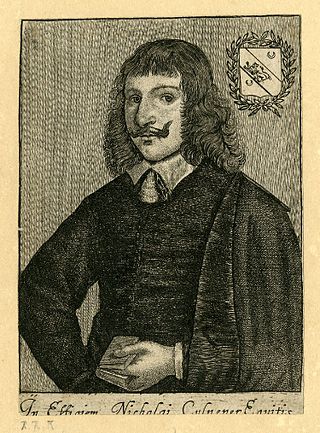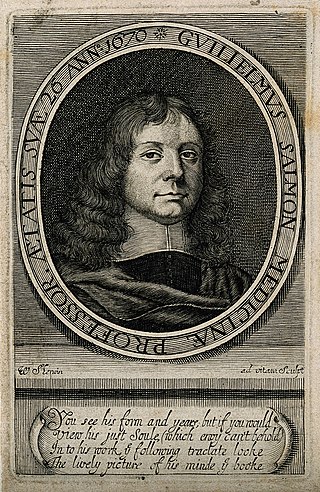Related Research Articles

Thomas Bartholin was a Danish physician, mathematician, and theologian. He discovered the lymphatic system in humans and advanced the theory of refrigeration anesthesia, being the first to describe it scientifically.

Jan Baptist van Helmont was a chemist, physiologist, and physician from Brussels. He worked during the years just after Paracelsus and the rise of iatrochemistry, and is sometimes considered to be "the founder of pneumatic chemistry". Van Helmont is remembered today largely for his 5-year willow tree experiment, his introduction of the word "gas" into the vocabulary of science, and his ideas on spontaneous generation.
The year 1866 in science and technology involved some significant events, listed below.
The year 1650 in science and technology involved some significant events.
The year 1815 in science and technology involved some significant events, listed below.
The year 1725 in science and technology involved some significant events.
The year 1799 in science and technology involved many significant events, listed below.
The year 1703 in science and technology involved some significant events.
The year 1616 in science and technology involved some significant events.
The year 1660 in science and technology involved some significant events.
The year 1622 in science and technology involved some significant events.
The year 1615 in science and technology involved some significant events.
The year 1652 in science and technology involved some significant events.

Nicholas Culpeper was an English botanist, herbalist, physician and astrologer. His book The English Physitian is a source of pharmaceutical and herbal lore of the time, and Astrological Judgement of Diseases from the Decumbiture of the Sick (1655) one of the most detailed works on medical astrology in Early Modern Europe. Culpeper catalogued hundreds of outdoor medicinal herbs. He scolded contemporaries for some of the methods they used in herbal medicine: "This not being pleasing, and less profitable to me, I consulted with my two brothers, Dr. Reason and Dr. Experience, and took a voyage to visit my mother Nature, by whose advice, together with the help of Dr. Diligence, I at last obtained my desire; and, being warned by Mr. Honesty, a stranger in our days, to publish it to the world, I have done it."

A herbal is a book containing the names and descriptions of plants, usually with information on their medicinal, tonic, culinary, toxic, hallucinatory, aromatic, or magical powers, and the legends associated with them. A herbal may also classify the plants it describes, may give recipes for herbal extracts, tinctures, or potions, and sometimes include mineral and animal medicaments in addition to those obtained from plants. Herbals were often illustrated to assist plant identification.

William Salmon (1644–1713) was an English empiric doctor and a writer of medical texts. He advertised himself as a "Professor of Physick". Salmon held an equivocal place in the medical community. He led apothecaries in opposing attempts by physicians to control the dispensing of medicines, and was derided by physicians as "the King of the Quacks". He has been described as "a brilliant publicist, but not much of a philosopher".
Jean Pecquet was a French scientist. He studied the expansion of air, wrote on psychology, and is also known for investigating the thoracic duct. Furthermore, he studied the nature of vision.
Events from the 1610s in England.
William Rand was an English physician who projected general reforms in medical education, practice and publication. His views were Paracelsian and Helmontian, and he participated in the Hartlib Circle.
Events from the year 1805 in Scotland.
References
- ↑ "Begonias". herbs2000.com. Retrieved 2012-06-01.
- ↑ Curry, Patrick (2004). "Culpeper, Nicholas (1616–1654)". Oxford Dictionary of National Biography . Oxford University Press. Retrieved 2011-03-23.(subscription or UK public library membership required)